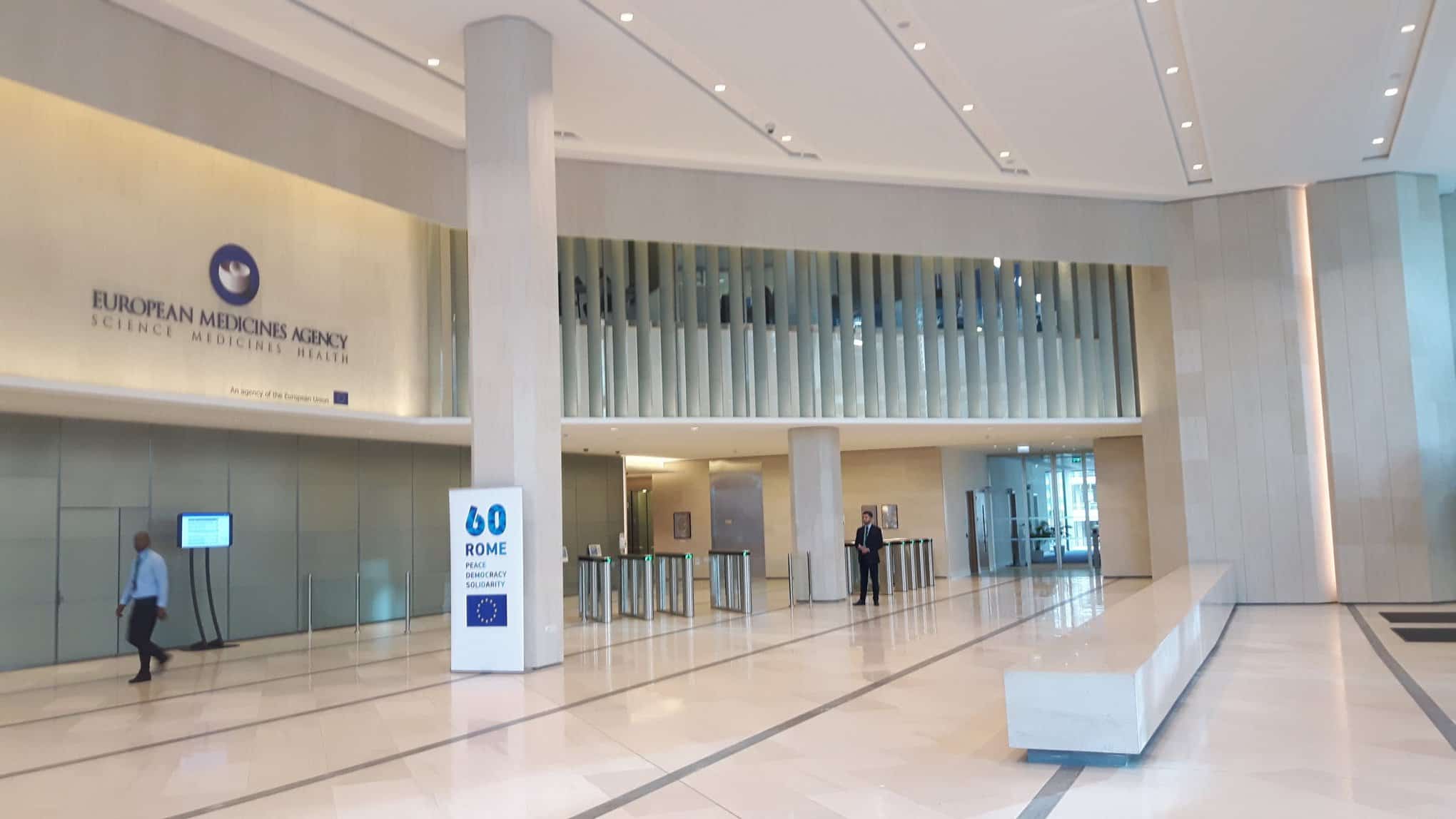
The European Medicines Agency’s (EMA) Committee for Medicinal Products for Human Use (CHMP) held its July meeting last week, handing out ten positive recommendations for new drugs.
That includes a recommendation for a conditional marketing approval for GlaxoSmithKline’s new antibody drug conjugate Blenrep (belantamab mafodotin). The anti-BCMA therapy has received a positive opinion for the treatment of relapsed and refractory multiple myeloma in patients who no longer respond to treatment with an immunomodulatory agent, a proteasome inhibitor and a CD-38 monoclonal antibody.
BCMA protein is expressed at varying levels in myeloma patients and BCMA membrane expression is universally detected in myeloma cell lines.
The positive opinion was based on results from a second pivotal trial of the ADC – DREAM22 – which demonstrated a 31% overall response rate (ORR) for those receiving Blenrep who had exhausted multiple previous treatment options.
The drug is currently also under priority review by the US Food and Drug Administration (FDA) for the same patient population. The positive recommendation from the CHMP means that GSK’s Blenrep will be the first anti-BCMA treatment available to patients in Europe.
AstraZeneca also received two positive opinions following the meeting, with a recommendation for Calquence (acalabrutinib) to treat chronic lymphocytic leukaemia and a label extension of its PD-1 inhibitor Imfinzi (durvalumab) into first-line extensive-stage small cell lung cancer (ES-SCLC), in combination with a choice of chemotherapies.
Among other highlights from the meeting, Novartis scored a recommendation for its sickle cell therapy Adakveo (crizanlizumab) for the prevention of recurrent vaso-occlusive crises or pain crises, while Kyowa Kirin received a positive opinion for Crysvita (burosumab) for the treatment of older adolescents and adults living with the rare diseases X-linked hypophosphataemia.
Meanwhile, Sobi was handed a negative opinion for its drug Gamifant (emapalumab) as a treatment for the genetic disease primary haemophagocytic lymphohistiocytosis (HLH), which is characterised by an overactive immune system.
According to the CHMP, while several patients responded to treatment with the drug, the results from clinical studies of Gamifant were not considered sufficient evidence to conclude the treatment is effective in HLH.
Sobi has said it plans to request a re-examination by the CHMP and expects a subsequent opinion by the end of the year. The drug was approved by the US Food and Drug Administration for primary HLH in November 2018.
“Gamifant has demonstrated a positive benefit/risk profile in primary HLH in a post-approval real life setting in the US since the FDA approval in 2018. The product has been able to make a substantial difference for a very vulnerable group of patients in the US,” said Guido Oelkers, chief executive officer and president of Sobi.
“We will do our utmost to share these insights and address the open questions from CHMP during the re-examination with a view to securing access for primary HLH in children to this treatment in Europe,” he added.




